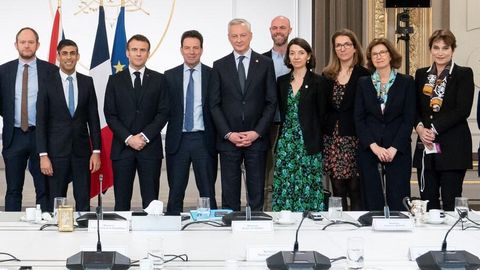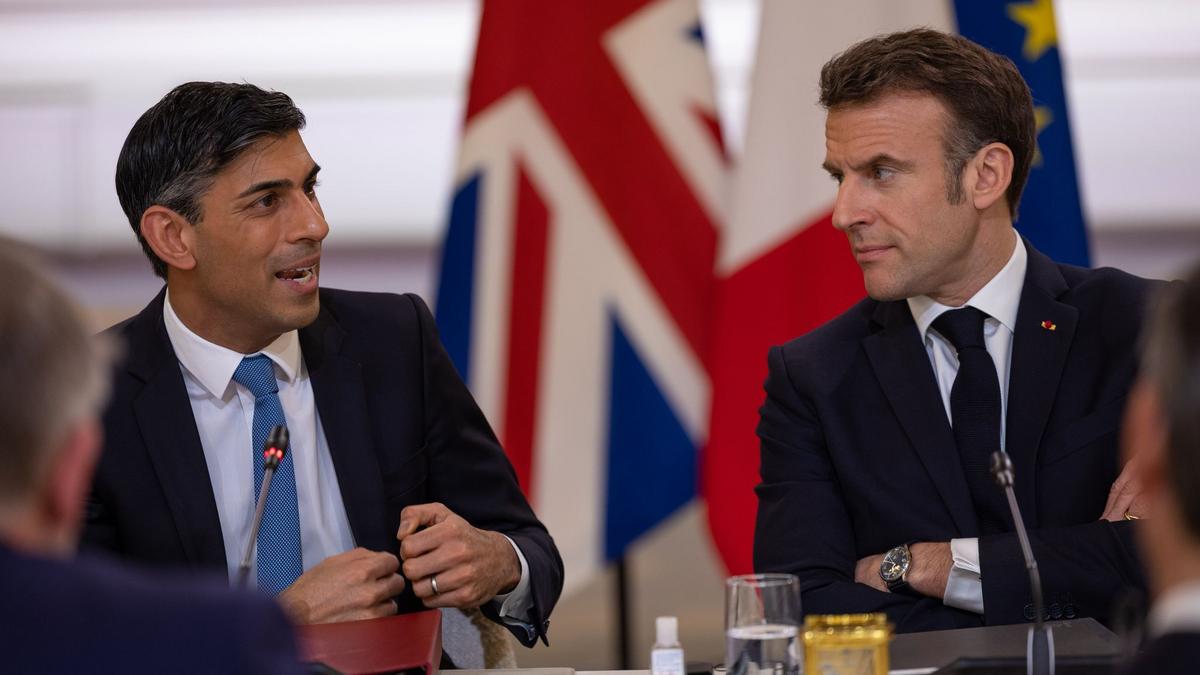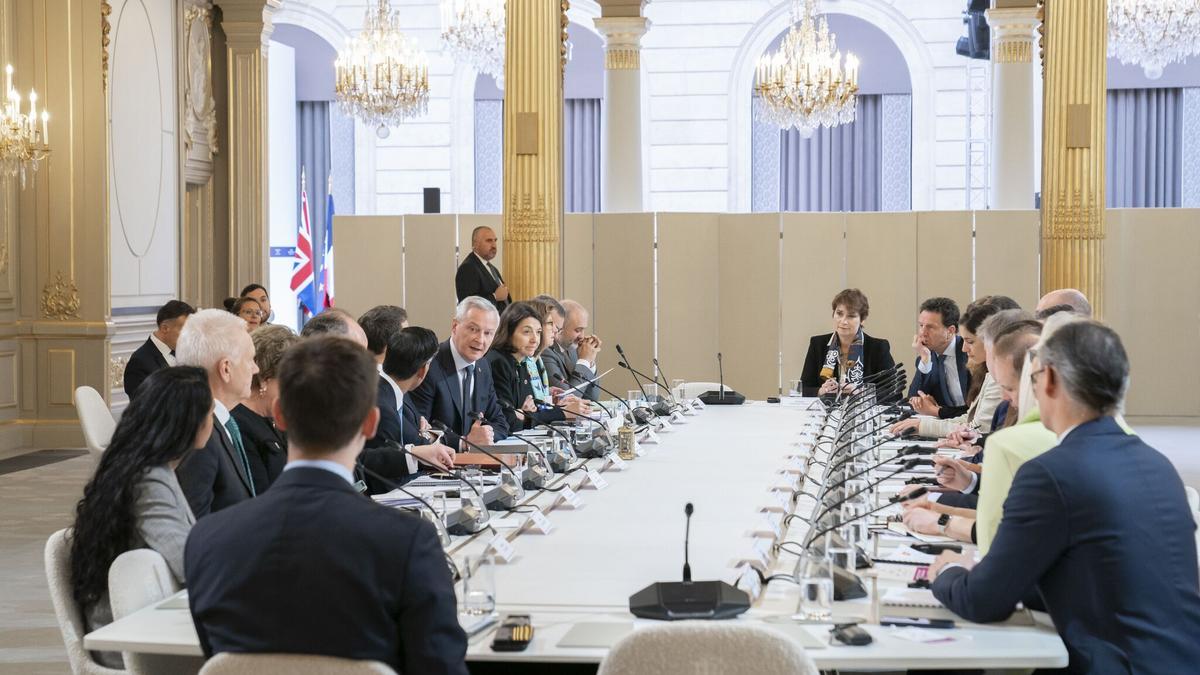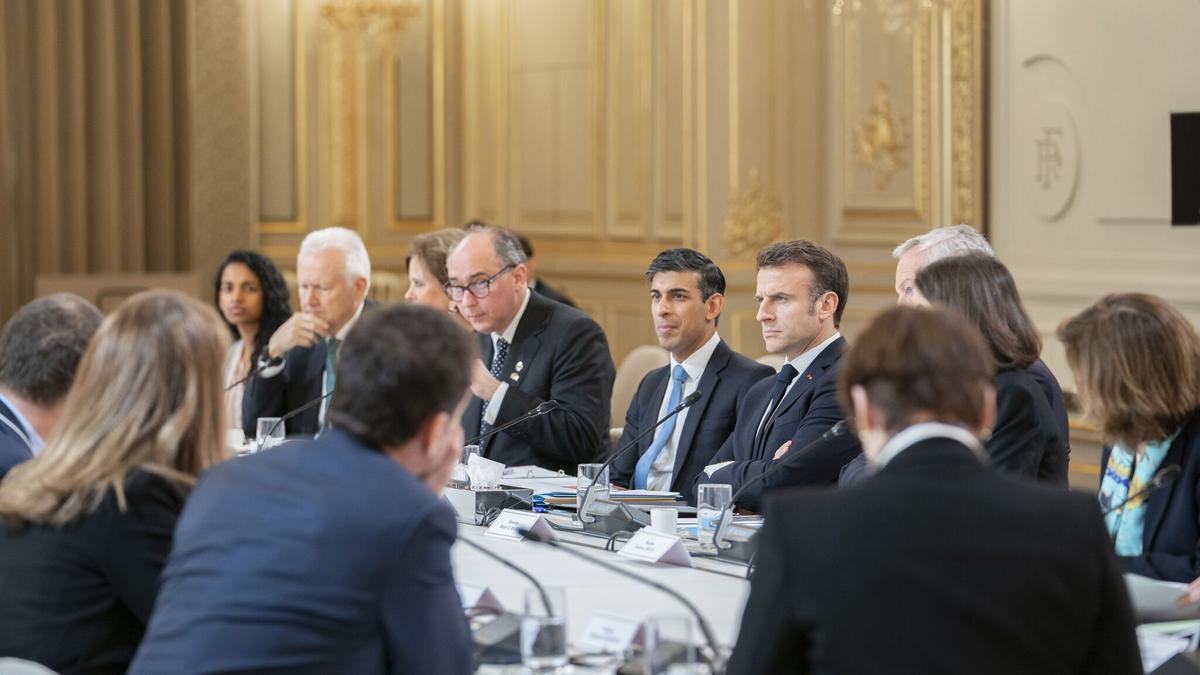The Chamber
Business plays a key role in a new Franco-British bilateral agenda

At the Franco-British Summit held in Paris, business leaders and the President of the Chamber were invited to participate in discussions regarding the future of business relations between France and the UK, and to exchange their ideas about new opportunities that could benefit both nations.
Expectations were running high ahead of the 36th Franco-British Summit on 10 March – the first in five years. Such summits used to take place almost every year but stopped after the referendum on EU membership and relations between our two countries cooled. With the long-running dispute over the Northern Ireland protocol resolved with the agreement of the Windsor Framework, this was an opportunity for a reset.
The French Chamber was honoured to be involved in the Summit discussions. Our President, Fabienne Viala, was invited to join a business roundtable with President Macron and Prime Minister Sunak, in recognition of the Chamber’s focus on delivering impact and our work to connect business networks on both sides of the Channel. In July last year we created the UK-France Business Forum which brought together our members with those of the Franco-British Chamber of Commerce. The Forum met again in February and agreed a set of business-led recommendations which were sent to both governments ahead of the Summit.
We are delighted to have the Forum enshrined in the Joint Declaration, with both governments agreeing the Forum should be a recurring event to strengthen the business, commercial and industrial links between France and the UK. In addition, several of the Forum’s recommendations on mobility, border fluidity and energy transition were included as part of the new bilateral agenda. These will be discussed more in depth at an event for Patron and Corporate members on 29th March, co-organised with the French Foreign Trade Advisors and the Cercle d’Outre-Manche, with Emmanuel Masse, Minister Counsellor for Economic Affairs and Head of the Economic Department at the French Embassy and Georgina Write, Senior Fellow and Director of Institut Montaigne.
In the meantime, here are our three main takeaways from Summit:
1. Defence and security cooperation remains critical
Reaffirming their commitment to the Lancaster House Treaties, both countries pledged to further integration of French and British armed forces and develop their Joint Nuclear Commission as the principal forum for bilateral strategic decision. They went on to outline their vision for improving Franco-British industrial collaboration and capabilities through deeper ties regarding industrial strategy, supply chain risks, critical key components and skills, among other things. Regarding Ukraine, they also announced their intention to deepen collaboration and coordination.
2. Net Zero alignment creates opportunities in renewable and nuclear energy
The two countries reached an agreement on a bilateral energy strategy partnership, which includes civil nuclear cooperation, to support renewable energy, the energy transition, and decarbonisation of the transportation and industrial sectors. The two will also concentrate on developing sustainable, low-carbon hydrogen and offshore wind. France and the UK further committed to the establishment of Green Shipping Corridors – zero-emission maritime routes between two or more ports cross-Channel.
Reflecting our Forum’s recommendations for a joint task force on Energy Transition (see Clean Growth report here) both governments have committed to establishing a bilateral taskforce bringing together the key stakeholders to enhance coordination on the deployment of zero-carbon technology.
3. Encouraging commitments in mobility and border fluidity
Although the issue of mobility needs to be considered within the framework of the EU-UK relationship, the two countries’ willingness to move forward is encouraging. The UK and France agreed to establish a Mobility Dialogue through a Technical Working Group under joint ministerial oversight, to address bilateral mobility issues, including access for VIEs in the UK. This was a key recommendation made by our Business Forum (see Mobility report here).
Both governments have also recognised the importance of travel between our countries and have committed to easing travel for school groups. They have also committed to maximize border fluidity and to jointly prepare operationally for the introduction of the Entry Exit System, another key Business Forum recommendation.
We plan to bring the Forum together again before the Summer in Paris, to consider how we might continue to input into this new bilateral agenda. The continued insight and contribution of members gives the Chamber the credibility to promote the economic importance of the Franco-British business relationship with key governmental stakeholders on both sides of the Channel. In the coming months, we will continue to expand our advocacy efforts through our events, clubs, advisory council, and members pulse survey.


